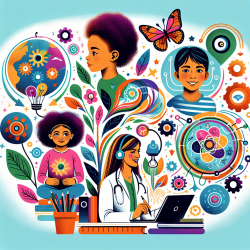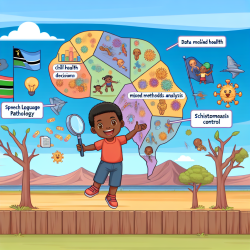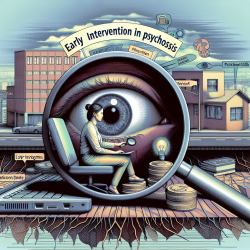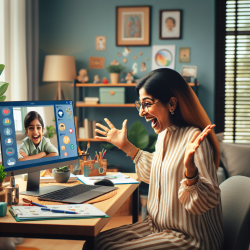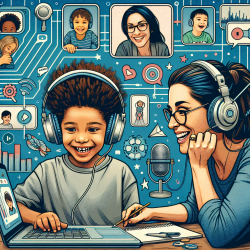As a speech language pathologist working within the educational setting, I've had the privilege of witnessing the incredible strides children can make when they receive the support they need. Every child is unique, with their own set of challenges and strengths, and it's our job to tailor our approach to meet their individual needs. This is where the Individualized Education Program (IEP) comes into play, serving as a roadmap for each child's educational journey. However, the traditional models of delivering therapy services have sometimes limited our ability to fully support every child. This is where the winds of change are most welcome, particularly through the advent of online therapy services like those provided by TinyEYE.
For many speech language pathologists and the families we work with, the concept of online therapy initially brings a mix of curiosity and caution. It's a departure from the traditional face-to-face sessions that have been the norm for so long. Yet, as we look closer at the benefits and successes of online therapy, it becomes clear that this change is not only necessary but also incredibly exciting for the future of children's IEPs.
First and foremost, online therapy offers unparalleled accessibility. For children in remote areas or those who have difficulty accessing transportation, online sessions ensure they receive consistent and quality therapy. This means that no child has to miss out on the support they need due to logistical challenges. Moreover, the flexibility of online therapy allows for sessions to be scheduled at times that are most convenient for the child and their family, ensuring that therapy becomes a seamless part of their routine rather than an added stressor.
Another significant advantage of online therapy is the wealth of resources it puts at our fingertips. Digital tools and interactive games not only make sessions more engaging for children but also allow for a tailored approach that can adapt to each child's progress and interests. This dynamic method of therapy keeps children motivated and invested in their own growth, leading to better outcomes and a more positive attitude towards their IEP goals.
For us as speech language pathologists, online therapy also opens up new avenues for collaboration. Through platforms like TinyEYE, we can easily connect with teachers, parents, and other specialists involved in a child's education. This ensures that everyone is on the same page and working together towards common goals. The ability to share resources, updates, and feedback in real-time strengthens the support network around each child, making their IEP a truly collaborative effort.
Perhaps one of the most heartening aspects of online therapy is the way it empowers parents and caregivers. By being able to observe and participate in sessions from the comfort of their own homes, families gain a deeper understanding of the strategies being used and how they can support their child's development outside of therapy sessions. This not only reinforces the child's learning but also fosters a stronger bond between the child and their family members, as they celebrate each milestone together.
Of course, embracing change also means facing challenges and skepticism. It's natural to have concerns about the effectiveness of online therapy compared to traditional methods. However, numerous studies and firsthand experiences have shown that, when implemented correctly, online therapy can be just as effective, if not more so, in helping children reach their IEP goals. The key is in the quality of the interaction between the therapist and the child, something that is not diminished by the digital medium.
Moreover, the ongoing advancements in technology and digital security ensure that online therapy sessions are safe and confidential, providing peace of mind for families and therapists alike. As we continue to navigate these changes, it's important to stay informed and open-minded, embracing the opportunities that online therapy brings to the table.
In conclusion, the landscape of educational support for children is evolving, and online therapy services like TinyEYE are at the forefront of this change. By offering accessibility, flexibility, and a collaborative approach to IEPs, online therapy has the potential to revolutionize how we support children in reaching their fullest potential. As speech language pathologists, our goal is always to provide the best possible care for the children we work with. Embracing online therapy is a step towards ensuring that every child, regardless of their circumstances, has access to the support they need to thrive.
So, to my fellow speech language pathologists and the families we serve: let's welcome this change with open arms. Let's explore the possibilities that online therapy offers and continue to work together towards creating a brighter future for all children. After all, it's in these moments of change that we often find our greatest opportunities for growth.
